Germany
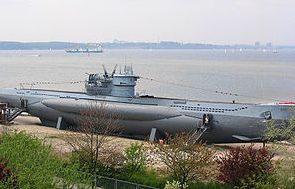 Anytime a soldier goes to war, there is a possibility of that soldier not returning, but some MOS (Military Occupational Specialty) categories were more dangerous than others. The life expectancy of a ball turret gunner in World War II, for instance, was just 12 minutes…yes, that’s right…12 minutes. And these guys didn’t always have a choice as to what job they did. If they were the shortest, they were most likely going to be a ball turret gunner, because of limited space in the ball. Still, while I don’t know the exact number who died, I know it was quite a few. Of course, soldiers on the ground are more at risk than other occupations too. There were the suicide bombers from Japan, who chose to fly their plane right into a ship too, but I think that few occupations were as deadly as that of the U-Boat crew. It wasn’t so much that the occupation was deadly, but rather that every country in the world was after the German U-Boat.
Anytime a soldier goes to war, there is a possibility of that soldier not returning, but some MOS (Military Occupational Specialty) categories were more dangerous than others. The life expectancy of a ball turret gunner in World War II, for instance, was just 12 minutes…yes, that’s right…12 minutes. And these guys didn’t always have a choice as to what job they did. If they were the shortest, they were most likely going to be a ball turret gunner, because of limited space in the ball. Still, while I don’t know the exact number who died, I know it was quite a few. Of course, soldiers on the ground are more at risk than other occupations too. There were the suicide bombers from Japan, who chose to fly their plane right into a ship too, but I think that few occupations were as deadly as that of the U-Boat crew. It wasn’t so much that the occupation was deadly, but rather that every country in the world was after the German U-Boat.
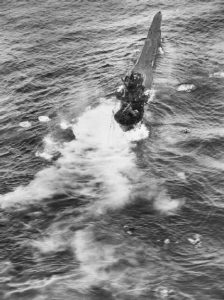
The U-Boat was a German submarine, and they were the best sumbarine the Germans had. There were 40,000 men who were assigned to the German U-Boats during World War II. Of those assigned to the U-Boats, only 10,000 returned. That is a shocking number!! I would never have wanted the Germans to win World War II, but when I think of the soldiers who fought, I’m sure that there were many who disagreed with Hitler, and others who were brainwashed into following him, but they were still soldiers, and people, and they had been given an assignment that was going to most likely get them killed. You see, the German U-Boat was the most feared of all the ships or submarines during World War II. They had a code system that was hard to crack, and they were sinking the Allies ships. They had to go. Once the Allies figured out their code, they could no longer hide. The U-Boats began dropping like flies, and with them…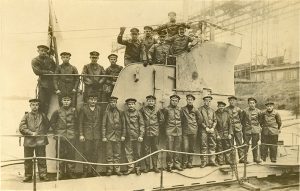 their crews, of course.
their crews, of course.
The U-Boats ran on battery power when they were submerged, and that didn’t last very long. So they were required to be a surface vessel most of the time, operating on their diesel engines. I don’t think that contributed to the U-Boat becoming a target, because as long as their whereabouts was coded, they were relatively safe. Once that safety net was gone, they were in a lot of trouble, as has been proven by the number of casualties. The fate of the crews of the U-Boats was not a good one, and those 30,000 men paid the final price, once that safety net was gone.
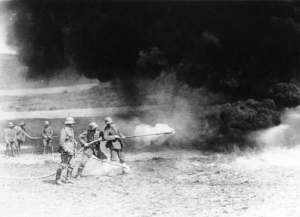 Over the centuries of life on Earth, there have been numerous wars, and numerous weapons of warfare. Yet, few could bring fear to the heart of an infantryman quicker than the Flammenwerfer. Developed by the Germans during World War I, the Flammenwerfer…or Flamethrower, in English…once lit could throw a steady stream of flames 20 to 30 feet in front of it. For the men on the ground, this meant one of two things. They could run…abandoning the relative safety of their foxhole, usually with the result of being shot down by the enemy, or they could stand their ground and be incinerated. It wasn’t much of a choice really, and most ran in the hope of escaping the machine gun fire that would undoubtedly follow the flamethrower. It was a situation of instant death…no matter which choice a soldier made…not to mention the fact that every fiber of a soldier’s being and training told them to stand their ground. This weapon took much of it toll on the soldier’s sense of bravery.
Over the centuries of life on Earth, there have been numerous wars, and numerous weapons of warfare. Yet, few could bring fear to the heart of an infantryman quicker than the Flammenwerfer. Developed by the Germans during World War I, the Flammenwerfer…or Flamethrower, in English…once lit could throw a steady stream of flames 20 to 30 feet in front of it. For the men on the ground, this meant one of two things. They could run…abandoning the relative safety of their foxhole, usually with the result of being shot down by the enemy, or they could stand their ground and be incinerated. It wasn’t much of a choice really, and most ran in the hope of escaping the machine gun fire that would undoubtedly follow the flamethrower. It was a situation of instant death…no matter which choice a soldier made…not to mention the fact that every fiber of a soldier’s being and training told them to stand their ground. This weapon took much of it toll on the soldier’s sense of bravery.
The Flammenwerfer was developed in 1915 by the Germans, and first used in battle against the Allied forces on this day, July 30, 1915 at the Battle of Hooge. Eleven days before that battle, British infantry had captured the German occupied village of Hooge, located near Ypres in Belgium, by detonating a large mine. Using the flamethrowers, along with machine guns, trench mortars and hand grenades, the Germans got their positions 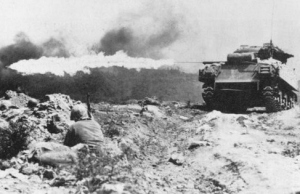 back on July 30, 1915. They broke through enemy front lines with ease, pushing the British forces back to their second trench. Only a few men were lost to actual burns, but a British officer was heard to explain that the weapons had a great demoralizing effect, and when added to the assault of the other powerful weapons, they proved mercilessly efficient at Hooge. I suppose that is true. I can think of few things more demoralizing for a soldier than running from your position in fear. Soldiers don’t take kindly to fear…or running away.
back on July 30, 1915. They broke through enemy front lines with ease, pushing the British forces back to their second trench. Only a few men were lost to actual burns, but a British officer was heard to explain that the weapons had a great demoralizing effect, and when added to the assault of the other powerful weapons, they proved mercilessly efficient at Hooge. I suppose that is true. I can think of few things more demoralizing for a soldier than running from your position in fear. Soldiers don’t take kindly to fear…or running away.
During World War I, the Germans were the only ones to use such a weapon, and not because it was difficult to make. So, why didn’t the Allies us it too? It was one of the great puzzles that emerged from World War I. Why? The British made three attempts with larger, more unwieldy prototypes: the smallest one was equal in size to the German Grof, which the enemy had almost abandoned by 1916. The French were more persistent, and by 1918 had at least seven companies trained in using flamethrowers, and still the use of the weapon never progressed to the same level as that of the German army.
By World War II, however, the flamethrower was the most dramatic hand weapon used by any Army and the most effective for its purpose. But it was during the 20th century that engineers and scientists placed flames 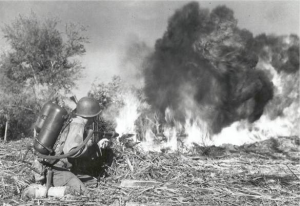 under advanced technological control in an effort to make flamethrowers portable, reliable and reasonably safe…for the user anyway. Prior to that the words “friendly fire” had a second meaning in that flamethrowers could kill the operator while he was doing his best to kill the enemy with it. The result of this new technology was a device with as much psychological impact as it’s lethality impact. That was the chief reason why the United States, Great Britain and other world powers used the flamethrower from World War I through the Vietnam War. Even today, Russia still has flamethrowers in its inventory. I guess it is an important weapon, but for most of us, I think that just the thought of using it on someone would make us seriously ill.
under advanced technological control in an effort to make flamethrowers portable, reliable and reasonably safe…for the user anyway. Prior to that the words “friendly fire” had a second meaning in that flamethrowers could kill the operator while he was doing his best to kill the enemy with it. The result of this new technology was a device with as much psychological impact as it’s lethality impact. That was the chief reason why the United States, Great Britain and other world powers used the flamethrower from World War I through the Vietnam War. Even today, Russia still has flamethrowers in its inventory. I guess it is an important weapon, but for most of us, I think that just the thought of using it on someone would make us seriously ill.
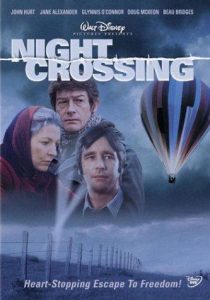
 Years ago, I watched a movie called Night Crossing, which came out in 1982. The movie was based on a true story about two families trapped in East Germany in 1979. The only way they could be free was to escape to the west. Over the years during which Germany was divided, and basically locked down. At first the people felt panic. Many of them had family on the other side, and no way to get to them. It was horrible. Escape attempts while not constant, were met with severe repercussions. I’m sure many people thought that they would always be prisoners in East Germany. Since today marks, the 68th anniversary of the ill fated Soviet blockade of their section of Germany following World War II, I was reminded of the movie I had seen.
Years ago, I watched a movie called Night Crossing, which came out in 1982. The movie was based on a true story about two families trapped in East Germany in 1979. The only way they could be free was to escape to the west. Over the years during which Germany was divided, and basically locked down. At first the people felt panic. Many of them had family on the other side, and no way to get to them. It was horrible. Escape attempts while not constant, were met with severe repercussions. I’m sure many people thought that they would always be prisoners in East Germany. Since today marks, the 68th anniversary of the ill fated Soviet blockade of their section of Germany following World War II, I was reminded of the movie I had seen.
I was so surprised about the elaborate lengths the family had to go to, in order to buy the materials needed to make a hot air balloon, with out arousing suspicions. To buy enough of the silk for the balloon, they had to go to several different locations, and tell the clerks that they were building tents for a scout group to use to go camping. I couldn’t imagine having to lie to a store clerk in order to purchase material, but then I have never lived anywhere, but in a free society, where the individual person had the right to do pretty much what they pleased. That was something that some of the people of that time, in East Germany, had never known.
While the situation was traumatic, I found myself…somehow fascinated with the process, the planning, the forethought, and the tenacity of these families. I found myself rooting for them every step of the way. Rooting for them wasn’t the thing that surprised me, however. It really was how interested I was in all the strategizing, and yes, the danger of it all. I don’t suppose the event felt anything like that to them, however. For them, this was life and death, because if they were caught, they would be killed. They would have one chance to escape, 
 and one chance only. And they still had to make the crossing, and the landing, without getting caught up in the barbed wire fencing, or landing on a fence somewhere. The whole event, while an exciting story for me, was probably an event that they could not wait to put behind them…and I don’t blame them there.
and one chance only. And they still had to make the crossing, and the landing, without getting caught up in the barbed wire fencing, or landing on a fence somewhere. The whole event, while an exciting story for me, was probably an event that they could not wait to put behind them…and I don’t blame them there.
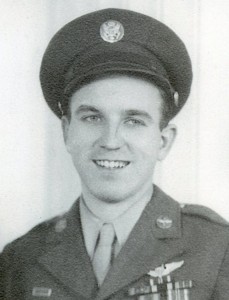 It’s hard for me to think about D-Day, without wondering what things were going through my dad, Allen Spencer’s mind on that day. Each branch of the military had their own part to play and each was in much danger. I suppose it’s possible that the men on the ground were in the most danger, but in reality, anyone who was involved that day faced grave danger. Soldiers could be shot and killed, ships could be sunk, and planes could be shot down. No matter how the attack came, death was often the result, and in battle it was inevitable.
It’s hard for me to think about D-Day, without wondering what things were going through my dad, Allen Spencer’s mind on that day. Each branch of the military had their own part to play and each was in much danger. I suppose it’s possible that the men on the ground were in the most danger, but in reality, anyone who was involved that day faced grave danger. Soldiers could be shot and killed, ships could be sunk, and planes could be shot down. No matter how the attack came, death was often the result, and in battle it was inevitable.
My dad was a young man of just 20 years. That is the age of my two oldest grandchildren, and I simply cannot imagine either of them being in that position. Of course, they could handle it, because twenty year olds have been fighting wars for as long as wars have been fought. It is me, and my mind, that can’t wrap itself around the idea of them being in an airplane providing air support over a battlefield. For my dad, every mission held an adrenalin rush, a degree of excitement, and a large degree of dread, mixed with the need to push back fear. Flying in the B-17G Bomber was an exciting thing for him, but unfortunately it had to 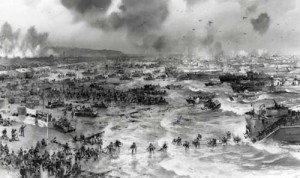 be mixed with the reality of the fact that those bombs were killing people…even if they were the enemy. They often had no say in the matter, they were an enemy of the Allied Forces simply because they lived in the country they did.
be mixed with the reality of the fact that those bombs were killing people…even if they were the enemy. They often had no say in the matter, they were an enemy of the Allied Forces simply because they lived in the country they did.
The air war was vastly different from the ground war, but that didn’t make either more of less dangerous. The Luftwaffe was not widely used on D-Day, but did come racing in over the following days. The weather was bad that first day, and that was definitely to the advantage of the Allied troops. Nevertheless, there were German forces involved, and without air support, they could not have pulled off the victory they did at Normandy. The planes that were there to provide air support, were basically magnets for the 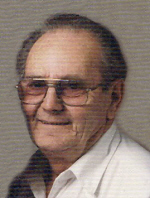 Luftwaffe, and any other enemy forces on the ground. Flying over Normandy was not a task to be taken lightly. Their job was to keep the bombers, tanks, and other soldiers off of the ground troops. The men risked their lives every second that they were in the air. The men on the ground were so vulnerable, and it was imperative that they have good air cover to keep as much enemy fire off of them as possible. It was very clear that without the air support, D-Day would not have been possible.
Luftwaffe, and any other enemy forces on the ground. Flying over Normandy was not a task to be taken lightly. Their job was to keep the bombers, tanks, and other soldiers off of the ground troops. The men risked their lives every second that they were in the air. The men on the ground were so vulnerable, and it was imperative that they have good air cover to keep as much enemy fire off of them as possible. It was very clear that without the air support, D-Day would not have been possible.
I am very proud of the part my dad played in D-Day, as I am of men like my Uncle Jim Wolfe, who was one of those men on the ground on that fateful day. Their job was a very dangerous one, and many of them would not see the sun set that night, but they had a job to do, and so they went out to battle for the freedom of those who were oppressed by the evil that was Hitler. It is a battle we will never forget, nor will we forget the men who fought there, especially those who gave all.
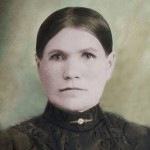 Things were quite different in the 1800s, as most of you know, but sometimes I wonder if we really understand how different they were. In about 1876 or so, my great grandmother, Henriette Schumacher, a girl of about 16 years, was sent by her widowed mother, with her sister to America. Her sister’s husband wanted to immigrate there, and since they had two little daughters, and Great Grandma’s mother was worried about her daughter going so far without help, she decided that since Henriette was not married she should go too. For their mother, there seemed to be safety in numbers, so it had to be better to send two girls instead of just one. I really can’t imagine the heartache she must have felt at that time. When my own daughter, Amy Royce moved to Washington state, I thought my heart would break…and yet I knew I would see her again, and that communication for us would be fairly easy. For my 2nd great grandmother, things were different. She didn’t know if she would see her daughters again, and I have no way to confirm that she did.
Things were quite different in the 1800s, as most of you know, but sometimes I wonder if we really understand how different they were. In about 1876 or so, my great grandmother, Henriette Schumacher, a girl of about 16 years, was sent by her widowed mother, with her sister to America. Her sister’s husband wanted to immigrate there, and since they had two little daughters, and Great Grandma’s mother was worried about her daughter going so far without help, she decided that since Henriette was not married she should go too. For their mother, there seemed to be safety in numbers, so it had to be better to send two girls instead of just one. I really can’t imagine the heartache she must have felt at that time. When my own daughter, Amy Royce moved to Washington state, I thought my heart would break…and yet I knew I would see her again, and that communication for us would be fairly easy. For my 2nd great grandmother, things were different. She didn’t know if she would see her daughters again, and I have no way to confirm that she did.
Still, many people were leaving the old country, in search of a dream life somewhere else. In that way, not much has changed at all. People still move from place to place, and sometimes country to country in search of some exciting new dream life. Some find what they are looking for, and others find out that what they were searching for was right there in front of them all along, so they return to their home. For my great grandmother, there didn’t seem to be much of a dream life waiting for her. She had a boyfriend back home, but things weren’t serous I suppose, because he didn’t follow her, and they never married. I think that for Great Grandma, Germany was comfortable. It was her home, and all she really knew. She didn’t have the wanderlust that her brother-in-law had. She couldn’t see that a life in America would be any better than the one she had in Germany, close to her family and friends. Nevertheless, go she must, so she said goodbye to all she knew, and headed off with her sister’s family to America.
In the end, she would find that her destiny was in America. It was there that she met my great grandfather, Carl Schumacher, who had immigrated a few years earlier. Their chance meeting when he stepped in for a baptismal sponsor who was unable to attend the baptism of Henriette’s sister’s daughter, brought Carl he 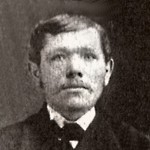 woman he would fall so completely in love with, that they would marry just a year later. I’m sure at that point, Henriette thought back to her prior boyfriend, and decided that their romance was a silly schoolgirl crush. Whoever he was, he could never have measured up to the man Carl was. Henriette wasn’t the same either. She was a world traveler now. She had lived in a wild new country. She had left home, grown up quickly, and had a degree of independence that her old beau would not have understood. Her world was different…things were different…she was different. He would never have been her choice now. Sometimes that is just how it goes. Our lives take turns that we didn’t plan on, and suddenly things are different. Then we have to live our life in the new reality that we live in. I’m sure that is how her mother felt too.
woman he would fall so completely in love with, that they would marry just a year later. I’m sure at that point, Henriette thought back to her prior boyfriend, and decided that their romance was a silly schoolgirl crush. Whoever he was, he could never have measured up to the man Carl was. Henriette wasn’t the same either. She was a world traveler now. She had lived in a wild new country. She had left home, grown up quickly, and had a degree of independence that her old beau would not have understood. Her world was different…things were different…she was different. He would never have been her choice now. Sometimes that is just how it goes. Our lives take turns that we didn’t plan on, and suddenly things are different. Then we have to live our life in the new reality that we live in. I’m sure that is how her mother felt too.
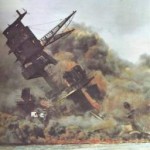
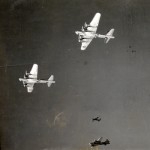 World War II had been raging since September 1, 1939. It was without doubt the most destructive war in history. Some say it was simply a continuation of World War I, that had ended in 1918. Others will blame the 1931 Japanese seizure of Manchuria from China, or Italy’s invasion and defeat of Ethiopia in 1935, or Adolf Hitler’s re-militarization of Germany in 1936, or the Spanish Civil War 1936 to 1939, or Germany’s occupation of Czechoslovakia in 1938 as possible beginnings. But, the two dates most often mentioned as “the beginning of World War II” are July 7, 1937, when the “Marco Polo Bridge Incident” led to war between Japan and China, and September 1, 1939, when Germany invaded Poland, which led Britain and France to declare war on Hitler’s Nazi state in retaliation. To me it would seem that the tensions that had begun before World War I, simply never went away. It would seem that there were many world leaders who were power hungry, and greedy for the lands that belonged to their neighbors. And when you look at the Middle East today, maybe not much has really changed.
World War II had been raging since September 1, 1939. It was without doubt the most destructive war in history. Some say it was simply a continuation of World War I, that had ended in 1918. Others will blame the 1931 Japanese seizure of Manchuria from China, or Italy’s invasion and defeat of Ethiopia in 1935, or Adolf Hitler’s re-militarization of Germany in 1936, or the Spanish Civil War 1936 to 1939, or Germany’s occupation of Czechoslovakia in 1938 as possible beginnings. But, the two dates most often mentioned as “the beginning of World War II” are July 7, 1937, when the “Marco Polo Bridge Incident” led to war between Japan and China, and September 1, 1939, when Germany invaded Poland, which led Britain and France to declare war on Hitler’s Nazi state in retaliation. To me it would seem that the tensions that had begun before World War I, simply never went away. It would seem that there were many world leaders who were power hungry, and greedy for the lands that belonged to their neighbors. And when you look at the Middle East today, maybe not much has really changed.
Wherever you place the beginning of World War II, you would agree that while the Japanese and the Germans may not have been war weary, the rest of the world really was. Before the Japanese attacked Pearl Harbor on December 7, 1941, the United States had somehow managed to stay out of the conflict. Whether that was right or wrong is a matter of opinion too. Nevertheless, when the Japanese brought the war to our front door, the United States answered with a vengeance. I’m sure the allies were glad to have the reinforcements, but also wondered why it had taken so long for us to get involved. Sometimes, I have wondered that myself, about that and other wars that we have come into just a little bit late in the game.
That said, we got into the war, and I believe that the extra military might that the United States brought to the Allied Forces was the tipping point in the war, because a war that had officially raged since September 1, 1939, was brought to an end on September 2, 1945, when Victory over Japan was celebrated in the United States. Japanese troops finally surrendered to Americans on the Caroline, Mariana, and Palau islands. Representatives of their emperor and prime minister were preparing to formalize their declaration of defeat. In Tokyo Bay, aboard the Navy battleship USS Missouri, Japanese foreign minister, Mamoru Shigemitsu and chief of staff of the Japanese army, Yoshijiro Umezu, signed the “instrument of surrender.” General Douglas MacArthur, commander of the US Army forces in the Pacific, and Admiral Chester Nimitz, commander of the US Pacific Fleet were there to represent the Allied victors.
After the surrender, Mamoru Shigemitsu was found guilty of war crimes. He was sentenced to seven years in prison. Oddly, it was he who had fought for concessions on the Japanese side in an attempt to secure an early peace. He was paroled in 1950 and went on to become chairman of Japan’s Progressive Party. General 
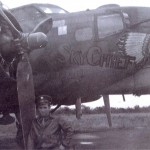 MacArthur would come up against him again when he was named commander in chief of the United Nations forces in Korea in 1950. For some people, it would seem, that one defeat simply isn’t enough, but that is another story. Today is VJ Day…Victory over Japan Day. It may not be a day that we remember as well as we do D Day, which simply stands for the day designated to storm the beaches at Normandy, or the attack on Pearl Harbor, but VJ Day is in reality as important a day as those others too, because it was the day that ended the world’s worst, and most destructive war.
MacArthur would come up against him again when he was named commander in chief of the United Nations forces in Korea in 1950. For some people, it would seem, that one defeat simply isn’t enough, but that is another story. Today is VJ Day…Victory over Japan Day. It may not be a day that we remember as well as we do D Day, which simply stands for the day designated to storm the beaches at Normandy, or the attack on Pearl Harbor, but VJ Day is in reality as important a day as those others too, because it was the day that ended the world’s worst, and most destructive war.
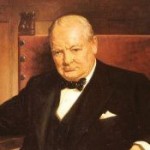 Over the thousands of years since man has been on the Earth, amazing people, as well as evil people, have made memorable speeches. Some speeches were never expected to be memorable or historic, and others were expected to be so, because they were designed to be uplifting, inspirational, morale building, or a tribute filled with gratitude. It was the latter that inspired Sir Winston Spencer Churchill to make his speech on August 20, 1940. Europe was entrenched in World War II and things weren’t going as well as they had hoped. They had taken a few rather large beatings from the Germans, and morale was not as high as they had hoped. The speech was given as the United Kingdom prepared for the expected German invasion. After a series of defeats for the Allies over the prior months, Churchill was trying to tell the people that they were in a much better position now. He was correct, of course. Shortly after the speech, the British won the battle, the first significant defeat for the previously unstoppable Wehrmacht.
Over the thousands of years since man has been on the Earth, amazing people, as well as evil people, have made memorable speeches. Some speeches were never expected to be memorable or historic, and others were expected to be so, because they were designed to be uplifting, inspirational, morale building, or a tribute filled with gratitude. It was the latter that inspired Sir Winston Spencer Churchill to make his speech on August 20, 1940. Europe was entrenched in World War II and things weren’t going as well as they had hoped. They had taken a few rather large beatings from the Germans, and morale was not as high as they had hoped. The speech was given as the United Kingdom prepared for the expected German invasion. After a series of defeats for the Allies over the prior months, Churchill was trying to tell the people that they were in a much better position now. He was correct, of course. Shortly after the speech, the British won the battle, the first significant defeat for the previously unstoppable Wehrmacht.
Times of war are often when great men make speeches to inspire the military troops to persevere. They can be a battle cry of sorts. Or they can be a reflection of such deep gratitude that it leaves us awestruck. Churchill was first moved to utter those famous words upon his exit from the Battle of Britain Bunker at RAF Uxbridge on August 16, 1940. He had been the Number 11 Group RAF Operations Room during a day of battle. Afterwards, Churchill told Major General Hastings Ismay, “Don’t speak to me, I have never been so moved.” His emotions were so deep, that he had to think about this for a time. The two were silent for a few moments, and then Churchill said, “Never in the field of human conflict has so much been owed by so many to so few.” That declaration became the basis of his speech to the House of Commons on August 20, 1940.
In his speech, Winston Churchill said, “The gratitude of every home in our Island, in our Empire, and indeed throughout the world, except in the abodes of the guilty, goes out to the British airmen who, undaunted by odds, unwearied in their constant challenge and mortal danger, are turning the tide of the World War by their prowess and by their devotion. Never in the field of human conflict was so much owed by so many to so few. All hearts go out to the fighter pilots, whose brilliant actions we see with our own eyes day after day, but we must never forget that all the time, night after night, month after month, our bomber squadrons travel far into Germany, find their targets in the darkness by the highest navigational skill, aim their attacks, often under the heaviest fire, often with serious loss, with deliberate, careful discrimination, and inflict shattering 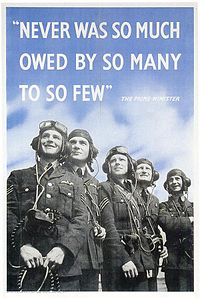 blows upon the whole of the technical and war-making structure of the Nazi power. On no part of the Royal Air Force does the weight of the war fall more heavily than on the daylight bombers who will play an invaluable part in the case of invasion and whose unflinching zeal it has been necessary in the meanwhile on numerous occasions to restrain…”
blows upon the whole of the technical and war-making structure of the Nazi power. On no part of the Royal Air Force does the weight of the war fall more heavily than on the daylight bombers who will play an invaluable part in the case of invasion and whose unflinching zeal it has been necessary in the meanwhile on numerous occasions to restrain…”
Words can be so powerful. They have the power to change the course of history when they are used to inspire soldiers in battle to a victory that seemed impossible just moments before the words were spoken. Sometimes, all it takes to bring about a victory is to listen to the one person who sees that victory, no matter how many defeats have preceded it, is still possible. Great men…men who have inspired victory…have been around a long time. These men, and women too, refuse to accept defeat. And they have the ability to speak powerfully to convince others that victory can follow defeat.
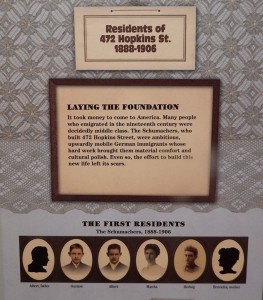 About a year ago, my cousin, Angie Schumacher Barden contacted me about a historic house that had been built by one Albert Schumacher and his family back in 1888, after they had moved from Henderson, Minnesota to Saint Paul, Minnesota. Angie wondered if these people might have been related to us. I told her that it would not surprise me, since Albert and Henrietta, who is his wife, are names that are in our family too. I expect that somewhere along the way, we will find that they are an aunt and uncle of some sort. I wish I could say that with this writing, I had found the connection, but I cannot say that yet. I have no doubt that in the near future I will find the connection, if it exists, but I have sometimes had to wait a long time, so you never know. Recently, Angie sent me pictures of the information she found at a museum, and I must say that I find it very interesting. The pictures tell not only that the Schumacher family built the house , but much of their family history, and it is from that information that my story will begin.
About a year ago, my cousin, Angie Schumacher Barden contacted me about a historic house that had been built by one Albert Schumacher and his family back in 1888, after they had moved from Henderson, Minnesota to Saint Paul, Minnesota. Angie wondered if these people might have been related to us. I told her that it would not surprise me, since Albert and Henrietta, who is his wife, are names that are in our family too. I expect that somewhere along the way, we will find that they are an aunt and uncle of some sort. I wish I could say that with this writing, I had found the connection, but I cannot say that yet. I have no doubt that in the near future I will find the connection, if it exists, but I have sometimes had to wait a long time, so you never know. Recently, Angie sent me pictures of the information she found at a museum, and I must say that I find it very interesting. The pictures tell not only that the Schumacher family built the house , but much of their family history, and it is from that information that my story will begin.
Albert and his wife, Henrietta arrived in Henderson, Minnesota in 1864. Their homeland was Germany. Now to my family, I’m sure you are beginning to see some similarities already. Albert had been trained as a confectioner in Germany, making him a really sweet guy in every sense of the word. When he arrived in Henderson, he saw he opportunity to to use those skills, so he opened up a sweet shop. He later worked for several years in the store of a merchant named Henry Poehler. He became the proprietor of the Sibley County Saloon in 1878, when Lorenz Oberst agreed to sell it to him. In 1888, decided to move his family to Saint Paul, Minnesota, where they opened up Schumacher’s Pharmacy. He had wanted to move for some time, and finally found a buyer for the saloon in one, Charles Pruetz.
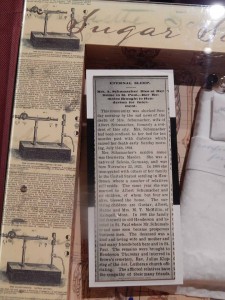
Albert and Henrietta, and the two of them had welcomed six children into the world. Joyous events to be sure, but into each life some rain must fall, and they were no exception. Of their six children, only Gustav, Albert, Margaret, and Hedwig survived. Arthur died at nine months and Camilla died after only ten days. Those were hard times for the family, but they had to go on for the other children.
Once they moved to Saint Paul, Albert and his sons built the house at 472 Hopkins Street. The family lived there from 1888 to 1906. On July 15, 1894 the family would again experience loss, when Albert’s beloved wife, Henrietta passed away. While Albert stayed in the house for six more years, I doubt if those last years were at all as happy as the first years had been. I’m sure that if those walls could talk, they would have many stories to tell about the years the family spent there. I look forward to learning more about this amazing family, and to find out for sure, if they are related to us.
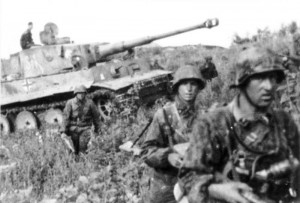 When the Germans invaded the Soviet Union in early July of 1943, they concentrated their forces near the city of Kursk in Western Russia. This was the site of a 150 mile wide Soviet resistance pocket that jutted 100 miles into the German lines. When the attack began on July 5th, the Germans had 38 divisions, of which, nearly half were armored. The Germans began their attack coming in from the north and the south, in an effort to cut off and surround the Soviet troops. Unfortunately for them, they had sorely misjudged the Soviet forces. Even though the Soviets were not really prepared for this invasion, they did have better tanks and air support than they had in previous battles. The fighting was bitter, but soon the Soviets had destroyed as much as 40 percent of the German armor, which included their new Mark VI Tiger tanks. I’m sure this must have been a shock to the Germans, who thought this tank was going to be their best tank ever, but like the Bismarck back in 1941, they found out that these new tanks were no match for what the Russians brought out.
When the Germans invaded the Soviet Union in early July of 1943, they concentrated their forces near the city of Kursk in Western Russia. This was the site of a 150 mile wide Soviet resistance pocket that jutted 100 miles into the German lines. When the attack began on July 5th, the Germans had 38 divisions, of which, nearly half were armored. The Germans began their attack coming in from the north and the south, in an effort to cut off and surround the Soviet troops. Unfortunately for them, they had sorely misjudged the Soviet forces. Even though the Soviets were not really prepared for this invasion, they did have better tanks and air support than they had in previous battles. The fighting was bitter, but soon the Soviets had destroyed as much as 40 percent of the German armor, which included their new Mark VI Tiger tanks. I’m sure this must have been a shock to the Germans, who thought this tank was going to be their best tank ever, but like the Bismarck back in 1941, they found out that these new tanks were no match for what the Russians brought out.
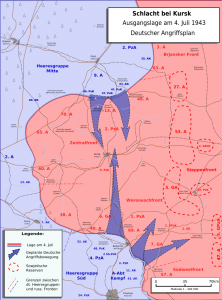
The Battle of Kursk was quite the battle. It involved 6,300 tanks, two million men, and 5,000 aircraft. It would be the largest tank battle in history, and it would end with the German offensive being driven back by the Soviets. The cost to the Germans was heavy, and the battle would be the beginning of the end for the Germans in Russia. The retreated as far as they were allowed, but Hitler was not really willing to let the retreat much. It was just another part of his insanity. He thought he could outlast the Russians. He had not learned from Bismarck or from Napoleon. It’s not surprising really. Hitler’s insanity honestly made him believe that he was invincible, a fatal mistake…at least in that he couldn’t accept the ultimate failure and so took his own life. The Battle of Kursk ended on July 13, 1943, and it did indeed mark the beginning of the end of the German invasion of Russia.
When I think of wars, for some reason I don’t think of tanks. Oh, I have seen the war movies and all, but tanks just seem clunky and awkward, and so not an efficient weapon of war in my mind. I suppose that if I know as much about tanks as my brother-in-law, Ron Schulenberg, who served in Desert Storm and was trained in the 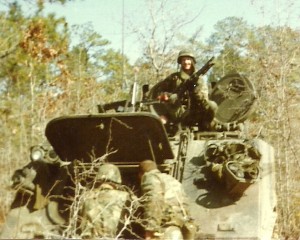 use of tanks knows, I might think they were more of a serious weapon. That is something I might have to discuss with him in the near future. The weapons used in wars are varied, and each one serves a purpose. Of course, each side tries to come up with a weapon that is far better than their opponent, and in the end, it is a matter of having the best weapon between the two enemies, and which side is able to use the weapons available to them. On this day, July 13, 1943 the Germans found out that the weapons the Russians had and their ability to use them would prove to be the undoing of their invasion. In the beginning of August, the Soviets began a major offensive around the Kursk area, and within weeks the Germans were in retreat all along the eastern front.
use of tanks knows, I might think they were more of a serious weapon. That is something I might have to discuss with him in the near future. The weapons used in wars are varied, and each one serves a purpose. Of course, each side tries to come up with a weapon that is far better than their opponent, and in the end, it is a matter of having the best weapon between the two enemies, and which side is able to use the weapons available to them. On this day, July 13, 1943 the Germans found out that the weapons the Russians had and their ability to use them would prove to be the undoing of their invasion. In the beginning of August, the Soviets began a major offensive around the Kursk area, and within weeks the Germans were in retreat all along the eastern front.
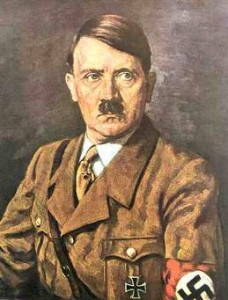 Anyone who knows much about Nazi Germany, knows that Adolf Hitler was insane. His hatred for the Jewish people was nothing less that insanity, because he had no valid reason to hate them. Nevertheless, the Holocaust did happen. Hitler did kill between five and six million Jews during his reign of terror. Many people thought that the Jews were the only target Hitler had too, but that wasn’t so. Hitler wanted to kill anyone who annoyed, inconvenienced, or even remotely bothered him. On this day, July 8, 1943, upon the German army’s invasion of Pskov, 180 miles from Leningrad, Russia, the chief of the German army general staff, General Franz Halder, records in his diary Hitler’s plans for Moscow and Leningrad: “To dispose fully of their population, which otherwise we shall have to feed during the winter.” Hitler planned to level both cities, or at least kill everyone in them, because he didn’t want to have to feed the prisoners during the long winter months! And for no other reason. Most armies at least set up prisoner of war camps, which while not terribly humane, gave some semblance of an attempt to be humane. I know that everyone complains about how the United States treats prisoners of war, but there really is no comparison, when you view the way Hitler and some other terrible dictators treat prisoners of war. Humane treatment is a pipe dream for prisoners of dictators.
Anyone who knows much about Nazi Germany, knows that Adolf Hitler was insane. His hatred for the Jewish people was nothing less that insanity, because he had no valid reason to hate them. Nevertheless, the Holocaust did happen. Hitler did kill between five and six million Jews during his reign of terror. Many people thought that the Jews were the only target Hitler had too, but that wasn’t so. Hitler wanted to kill anyone who annoyed, inconvenienced, or even remotely bothered him. On this day, July 8, 1943, upon the German army’s invasion of Pskov, 180 miles from Leningrad, Russia, the chief of the German army general staff, General Franz Halder, records in his diary Hitler’s plans for Moscow and Leningrad: “To dispose fully of their population, which otherwise we shall have to feed during the winter.” Hitler planned to level both cities, or at least kill everyone in them, because he didn’t want to have to feed the prisoners during the long winter months! And for no other reason. Most armies at least set up prisoner of war camps, which while not terribly humane, gave some semblance of an attempt to be humane. I know that everyone complains about how the United States treats prisoners of war, but there really is no comparison, when you view the way Hitler and some other terrible dictators treat prisoners of war. Humane treatment is a pipe dream for prisoners of dictators.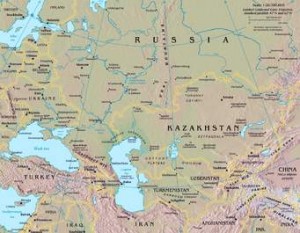
Hitler launched a massive invasion of the Soviet Union on June 22, with over 3 million men. He was highly successful, due in large part to a disorganized and unsuspecting Russian army. By July 8, they had captured 280,000 Soviet prisoners and almost 2,600 tanks were destroyed. The army was already a couple of hundred miles inside Soviet territory. Stalin was in a panic. He was so angry that he began executing generals who had failed to stop the invaders.
Halder, who was Hitler’s chief of staff, had been keeping a diary of the day-to-day decision making process. As time went on, Hitler became emboldened by his successes in Russia. Halder recorded that the “Fuhrer is firmly determined to level Moscow and Leningrad to the ground.” Halder also records the reality of Hitler’s underestimation of the Russian army’s numbers and the bitter fighting within Hitler’s own armies about strategy. Halder and some of the others wanted to make straight for the capital, Moscow. But Hitler wanted to meet up with Field Marshal Wilhelm Leeb’s army group, 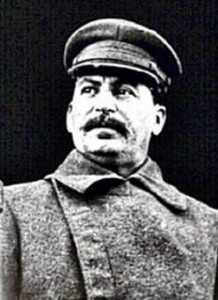 which was making its way toward Leningrad. And Hitler was, after all, in charge. But, the advantage Hitler had against the Soviets would not last very long. Winter was approaching and so was the advantage such conditions would give the Russians. The Russians were used to the severe Russian winters, and Hitler’s men were not. Like Napoleon before them, the Germans would soon find that they weren’t prepared for the Russian winter, and subsequent winters. And yet, Hitler thought he had learned from Napoleon. He ordered his troops to hold their ground. Which meant that during the Winter War, the German army was not able to pull back to more defensible positions. Consequently, the Russians were able to launch a series of counter-attacks during that first winter. These attacks cutoff some German forces, inflicted worse casualties than the Germans could inflict, but more importantly allowed the Russians to rebuild their army. The winter months proved to be just as detrimental for Hitler as they had for Napoleon. He was insane to even try such an attack.
which was making its way toward Leningrad. And Hitler was, after all, in charge. But, the advantage Hitler had against the Soviets would not last very long. Winter was approaching and so was the advantage such conditions would give the Russians. The Russians were used to the severe Russian winters, and Hitler’s men were not. Like Napoleon before them, the Germans would soon find that they weren’t prepared for the Russian winter, and subsequent winters. And yet, Hitler thought he had learned from Napoleon. He ordered his troops to hold their ground. Which meant that during the Winter War, the German army was not able to pull back to more defensible positions. Consequently, the Russians were able to launch a series of counter-attacks during that first winter. These attacks cutoff some German forces, inflicted worse casualties than the Germans could inflict, but more importantly allowed the Russians to rebuild their army. The winter months proved to be just as detrimental for Hitler as they had for Napoleon. He was insane to even try such an attack.

